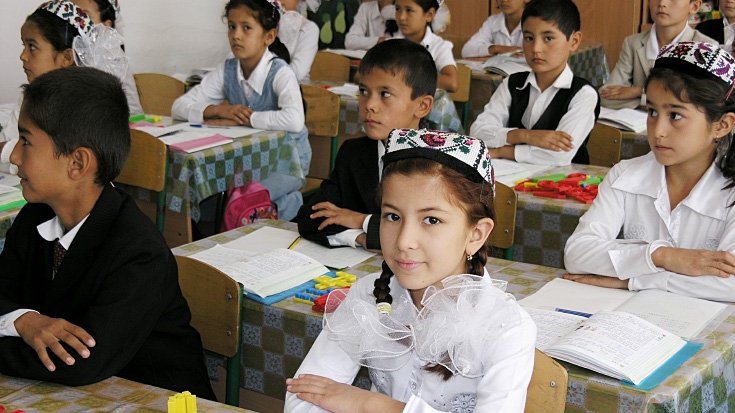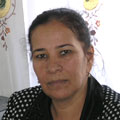Matluba Mukhamedova, Communications Officer in the World Bank Uzbekistan Office, offers this story.
Maktob Jumaeva's mother used to tell her that if she wanted to know something thoroughly, 'teach others'. She took her mother's advice to heart and became a school teacher, like her. After graduating from teachers' college, Jumaeva went back to her small town in Bukhara District. For the last six years she has been principal of Romiton School #1.
Jumaeva has seen a lot of improvement at Romiton School #1 in a short time. The school has had an infusion of new materials and resources—67 visual aids and master classes—that are helping teachers improve what they know and how they teach.
"Our government spends a lot of money on education. Probably this helps to maintain high enrollment and attendance rates. But the important thing is not so much that every child should be taught, as that every child should be given the wish to learn, and this is only possible when the quality of education is really high," Jumaeva says.
Together with 1,501 schools countrywide, Romiton School #1 has been benefiting from the Uzbek Government's basic education project. Supported by the World Bank, the project aims to improve the effectiveness of both teaching and learning.
It's needed. Many teachers lack the skills to engage students in what they are learning. In addition, classroom equipment is either insufficient or outdated - available aids and information technologies were used ineffectively, especially in primary classes where teachers have been making aids themselves. Since Romiton School #1 received its new aids, one student won a prize at an Olympiad, another won an essay contest, and a third received the governor's scholarship. Among the students are deputy members of the Children's Parliament and winners of ecological contests.


